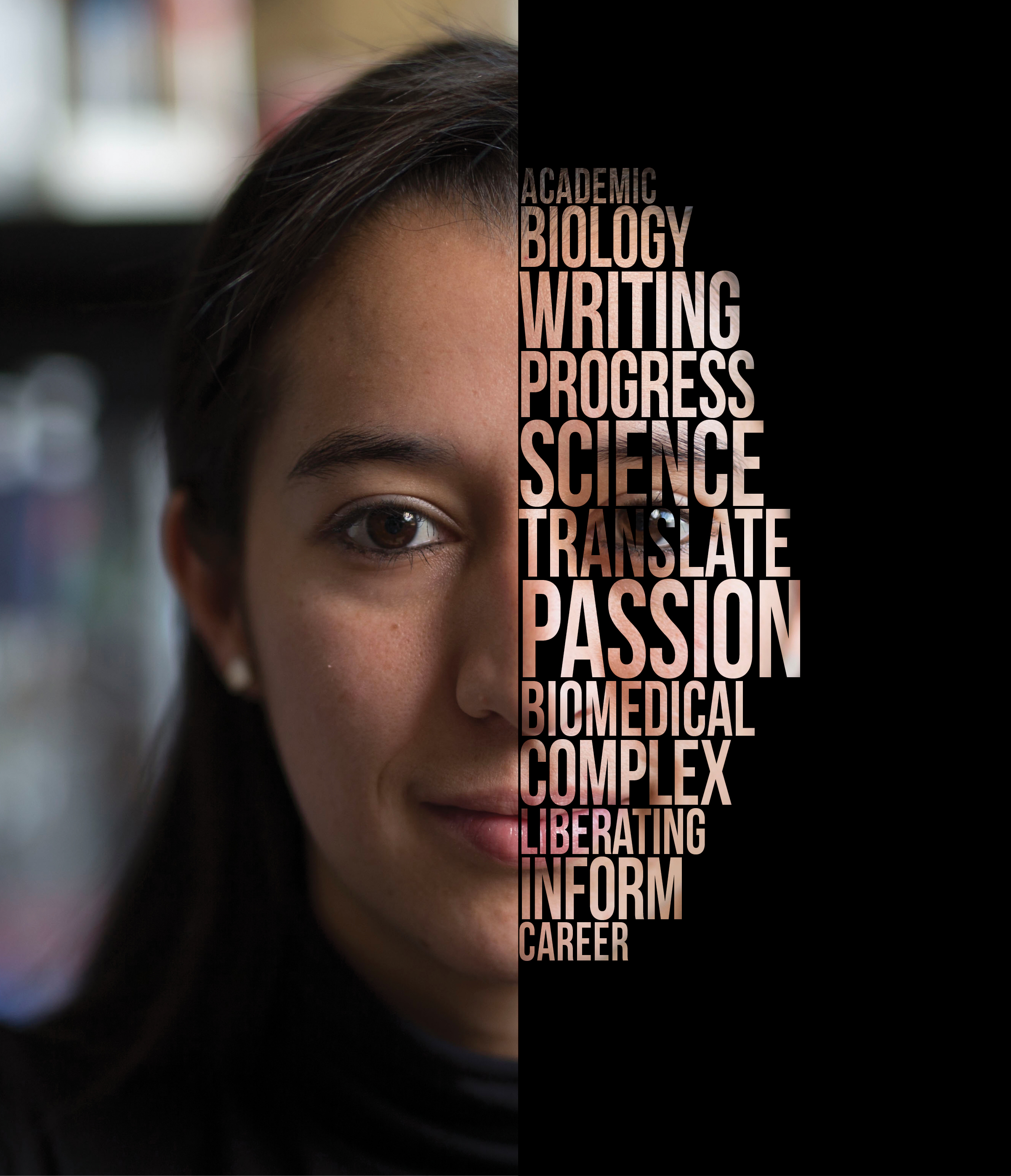By Lorena Infante Lara, Ph.D. candidate

When I was about 7 years old, I wanted to make special effects for movies, back in the days before computer graphics. I learned everything I could and would not shut up about it. One day I happened to tell one of my aunts about it.
She didn’t reply directly to me, but rather to my parents: “Don’t worry, she’ll grow out of it.”
I fumed then, and stayed mad for years after the fact. Why did this lady think she could tell me what I could or couldn’t do? I held on to my goal of creating movie magic for a long time, but as I grew up, I developed interests beyond the cinema. And though I chose to pursue a career in biology instead, after discovering the beautiful microscopic world of cells and DNA, I never forgot my aunt’s discouraging comment.
I am now almost finished with a Ph.D. in biochemistry, and once again I face the prospect of being told what to do. Go into industry, or join the ranks of academia? Those appear to be my only choices. Even nonscience friends and family ask which route I plan to pursue.
It’s as if studying science were simply a choice between selling your soul and making big bucks in pharmaceuticals or biotech, versus keeping your integrity intact while aging into a sensible sweater vest as a faculty member at a university. And yet, this is the question we biochemistry Ph.D.’s are all asked. Anyone who veers from those two choices becomes a source of incredulity for those around them. Such people are described as having chosen an “alternative career,” almost as if they had failed in their doctoral aspirations and had to settle for something else.
If that’s the case, I can’t wait to fail. That’s because I plan to use my Ph.D. to pursue a career in the media.
“But Lorena,” you might say, “you finally decided on science—you’re even doing a Ph.D. in biochemistry! Why did it take so long for you to figure out that you don’t want to do science?”
It’s not that I don’t like science or research—in fact, one of my favorite things to do is to stand at my lab bench doing experiments. It’s that I have found a productive way to combine my drive to communicate with others with my love of science.
During the fall of my third year of graduate school at Vanderbilt, I took a short, noncredit module titled Biomedical Research and the Media, which explored the relationship between research institutions like universities and the different news outlets that report on scientific findings. I learned about conducting interviews and being interviewed, and about writing for general audiences in ways that accurately explain scientific concepts without any jargon.
As a result of that class, I applied for a mass media fellowship with the American Association for the Advancement of Science (AAAS), which places postdocs, graduate students and even undergraduates at various media sites throughout the country for 10 weeks during the summer. There’s also a Spanish-language version of this fellowship through which the fellows are placed at Spanish-speaking media sites within the U.S. I’m a native Spanish speaker, so I applied for both fellowships, but the competition is stiff and I didn’t have many writing samples at the time.
I didn’t make it into either program in the summer of 2016, so I spent the next year seeking out as many writing opportunities as I could handle—one every month or two—from places like campus newsletters and one of the blogs run by the National Institutes of Health.
With the support of mentors who have enabled me to explore my interests, as well as Vanderbilt’s Biomedical Research Education and Training career development program, I reapplied to become one of the media fellows, hoping for a slot in the summer 2017 cohort. Again, I didn’t make the cut into either program, though I landed in the final round of 30 applicants being considered for the two Spanish-language slots.
But then, just as I thought my luck had run out, Univisión Noticias, an online news and TV network, offered me a third slot it had created in the program, paying for my stipend out of its own budget rather than the one provided by the AAAS.
I spent the summer writing a string of stories communicating scientific findings to lay audiences. Finally, I had found my calling.
It was exciting to come back to my lab life in Nashville last fall, but now I’m more excited than ever to graduate and jump into my very own alternative career. Failure at last.
Lorena Infante Lara is a current graduate student who anticipates receiving her Ph.D. in biochemistry in 2018.